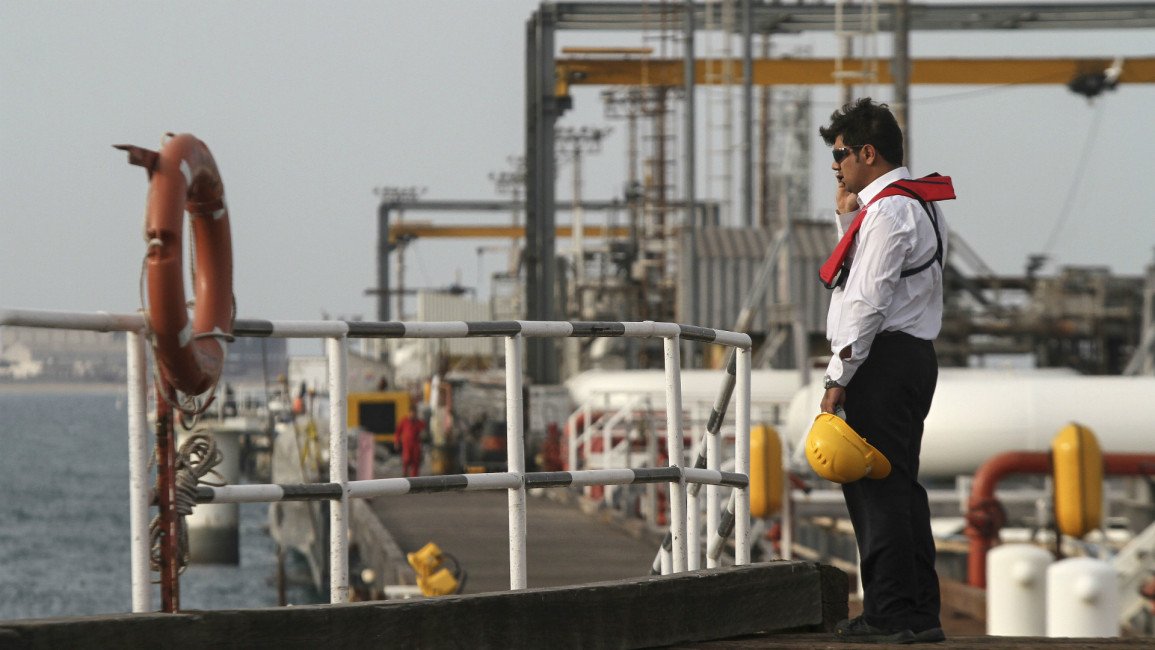Iran pledges to help stabilise global oil prices
Iran pledges to help stabilise global oil prices
Iran says it supports 'any decision' to help stabilise the global oil market.
2 min read
Iran remains keen to return to its pre-sanction share of the global crude market [Getty]
Iran’s Oil Minister Bijan Zanganeh announced on Tuesday that the Islamic republic supports “any decision” to help stabilise the global oil market following a meeting with OPEC secretary-general Mohammed Barkindo in Tehran.
“The desired price for most OPEC members for oil is between 50 and 60 dollars (per barrel),” Zanganeh is reported to have told the Iranian government affiliated Shana news agency, adding that such a pricing scheme would bring “desired, economic and beneficial oil production revenue for OPEC members, while their competitors will not be able to increase production.”
Iran was responsible for global increases in oil prices in late August when it announced it would take part in meetings with OPEC officials.
Speaking on August 26, Zanganeh noted that Iran was keen to return to its pre-sanctions share of the crude market before considering any form of cap emphasising the Islamic republic’s “right to restore our lost share in the market.”
Sanctions on Iran were dropped in July 2015 following the country’s signing of a nuclear deal with the US, UK, France, China, Russia and Germany.
Since this date Tehran has claimed it has doubled its oil and gas exports to 2.7 million barrels per day (bpd) with total production rising from 2.7 million bpd to 3.85 million bpd, close to pre-sanction levels brought into place in 2012.
In April OPEC made a previous attempt to freeze output, three months after the nuclear deal came into effect. However, the initiative collapsed due to Tehran’s reluctance to participate.
Speaking in February Zangadeh notably described an output freeze deal between Saudi Arabia and Russia, the world’s top two producers, as “a joke.”
Later this month OPEC members are scheduled to meet in Algiers for informal talks to discuss potential freezes in global production to boost prices.
Agencies contributed to this report
“The desired price for most OPEC members for oil is between 50 and 60 dollars (per barrel),” Zanganeh is reported to have told the Iranian government affiliated Shana news agency, adding that such a pricing scheme would bring “desired, economic and beneficial oil production revenue for OPEC members, while their competitors will not be able to increase production.”
Iran was responsible for global increases in oil prices in late August when it announced it would take part in meetings with OPEC officials.
Speaking on August 26, Zanganeh noted that Iran was keen to return to its pre-sanctions share of the crude market before considering any form of cap emphasising the Islamic republic’s “right to restore our lost share in the market.”
Sanctions on Iran were dropped in July 2015 following the country’s signing of a nuclear deal with the US, UK, France, China, Russia and Germany.
Since this date Tehran has claimed it has doubled its oil and gas exports to 2.7 million barrels per day (bpd) with total production rising from 2.7 million bpd to 3.85 million bpd, close to pre-sanction levels brought into place in 2012.
In April OPEC made a previous attempt to freeze output, three months after the nuclear deal came into effect. However, the initiative collapsed due to Tehran’s reluctance to participate.
Speaking in February Zangadeh notably described an output freeze deal between Saudi Arabia and Russia, the world’s top two producers, as “a joke.”
Later this month OPEC members are scheduled to meet in Algiers for informal talks to discuss potential freezes in global production to boost prices.
Agencies contributed to this report



